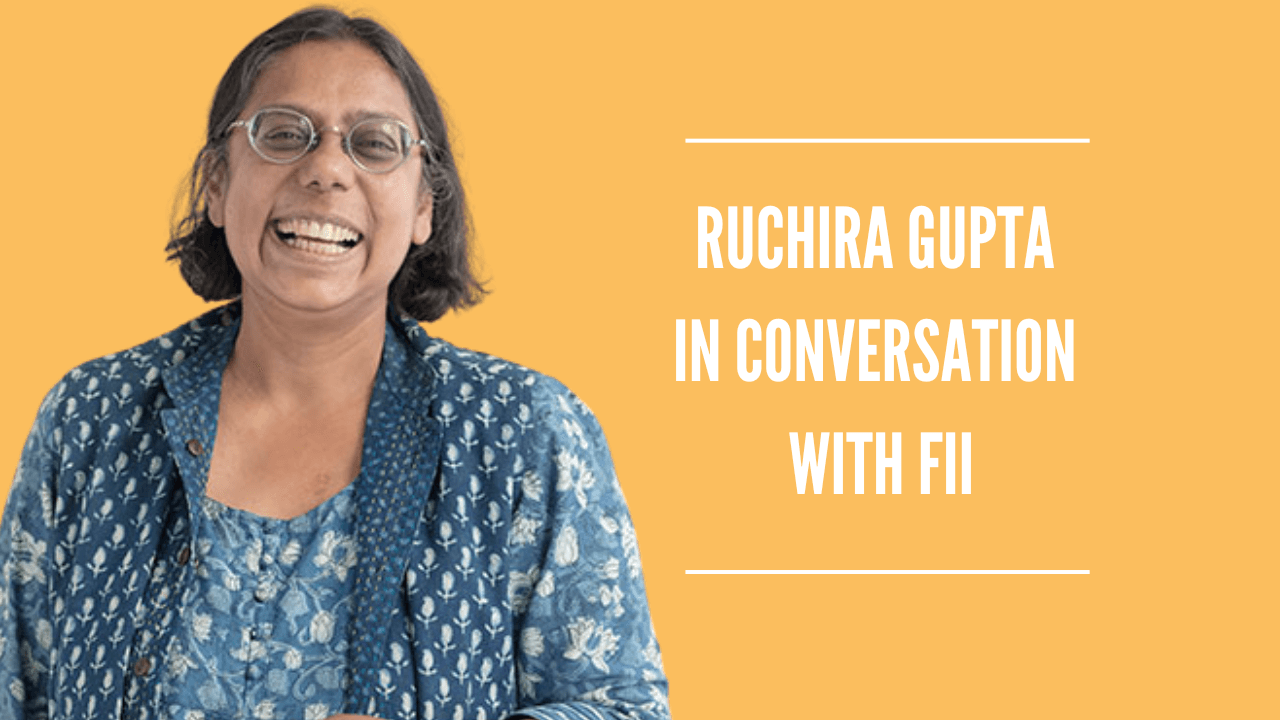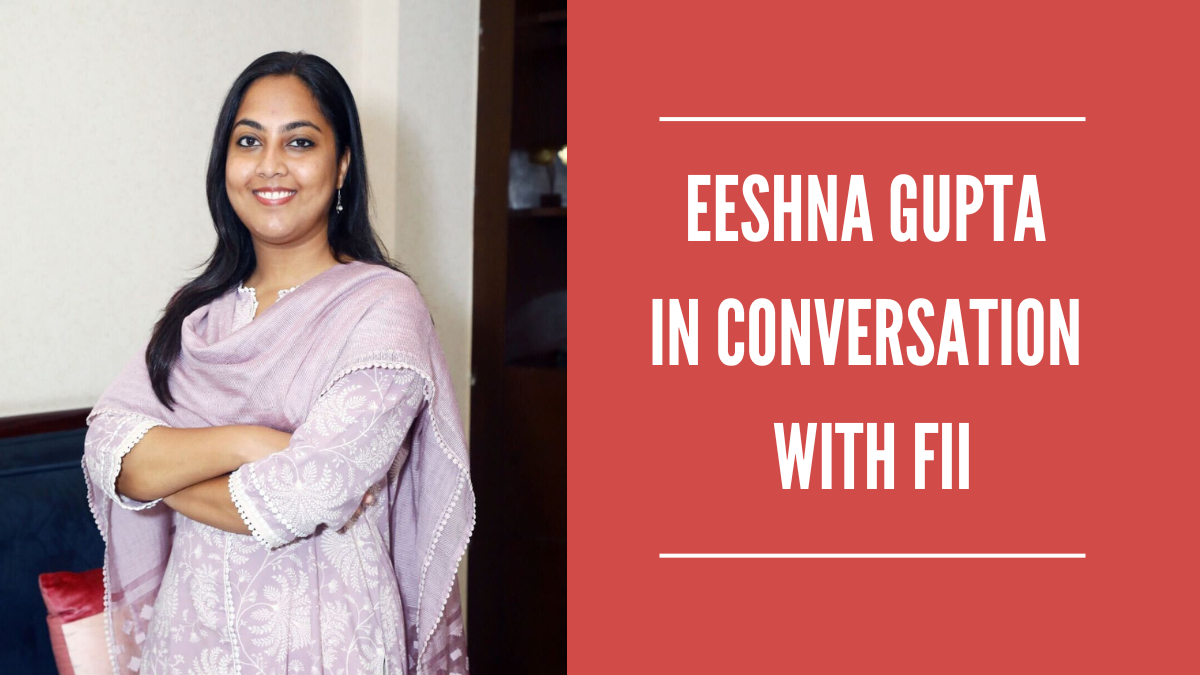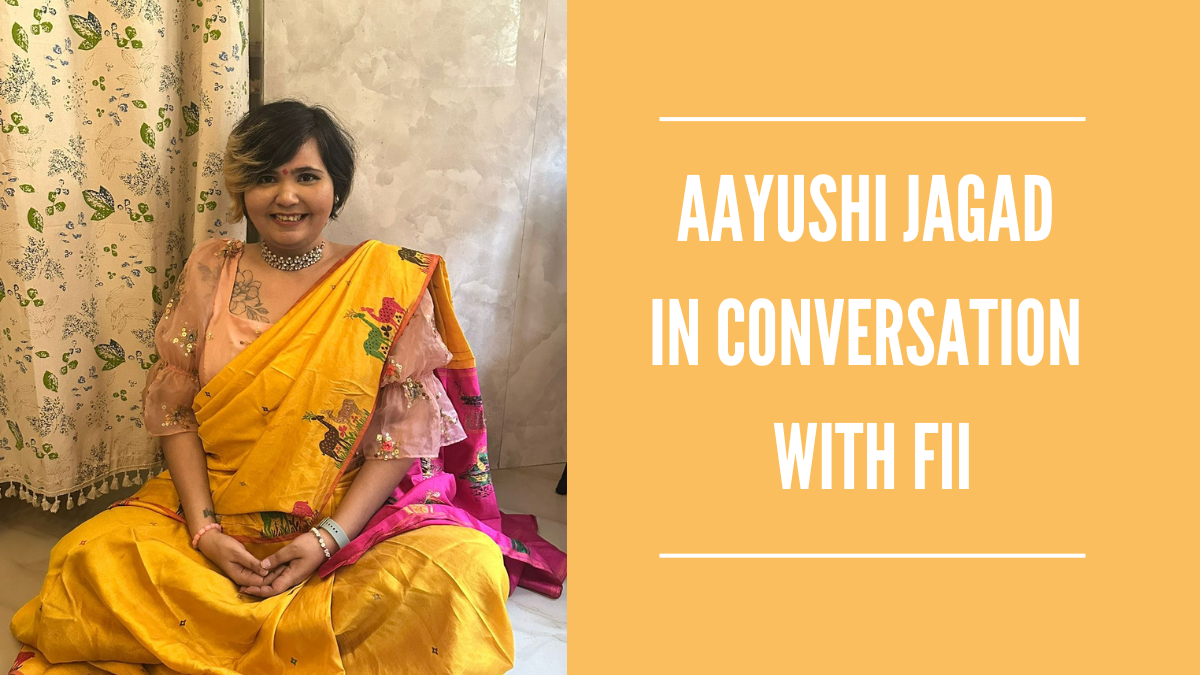Ruchira Gupta has established a two-decade-long legacy of fighting for the rights of women who, owing to conditions of caste, poverty, and gender discrimination at home, become victims of intergenerational prostitution. Ruchira Gupta’s Emmy Award-winning documentary “The Selling of Innocents” explored the plight of Nepali women trafficked into India.
In 2002, she founded Apne Aap Women Worldwide, an international NGO to combat sex trafficking. At Apne Aap, she has played an active role in enabling women to form self-help groups, empowering Denotified Tribes to have government identity cards and affirmative action from the state, and providing children of prostituted women legal support to file cases against traffickers.
International accolades such as the French Ordre National du Mérite, the Clinton Global Citizen Award, and the UN NGO CSW Woman of Distinction provide testament to her efforts in securing the rights of women across multiple axes of marginalisation. She is also an outstanding author, and her first novel, I Kick and I Fly, has received widespread appreciation.
In the interview with FII, Ruchira Gupta discusses the current state of the rights of trafficked women in India and the role citizens can play in increasing gender equality in society.
FII: Based on your more than two decades-long work on the rights of women in prostitution, do you think that the feminist movement in India has somewhat ignored the human rights of the trafficked victims?
Ruchira Gupta: There are many feminist movements in India, and everyone has a different approach, a different ideology, a different way of thinking based on their context, their upbringing, and where they are. For example, at Apne Aap, we fight for the human rights of victims of trafficking and also those at risk.
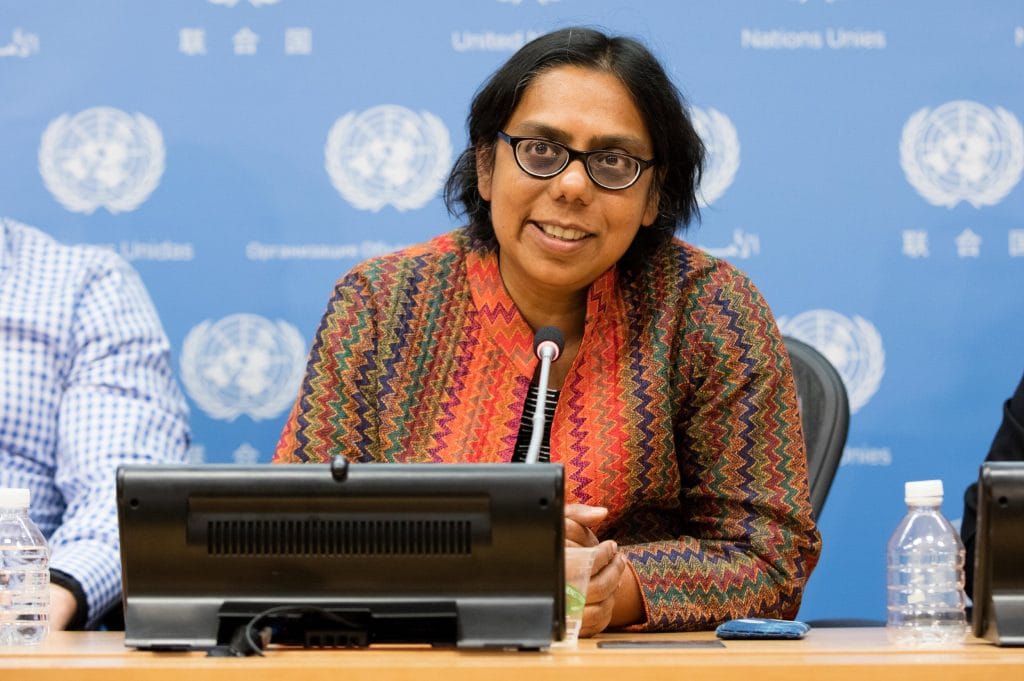
And we define human rights as the right not to be prostituted. We think of bodily autonomy as having control not to sell your body. But there are other groups in India who also call themselves feminists, and they will say that we believe in the right to be prostituted and we believe in selling our bodies, and that’s a human right. So there’s a big debate in the women’s movement.
There are multiple sides, like some people will say we want the prostitution to be decriminalised and we want the buyers to be punished; some people may say we want the prostitution to be decriminalised and even the buyers and the traffickers also to be decriminalised, so there are different things, and the human rights-based approach to trafficking, sex trafficking, and prostitution requires us to also take into account the dignity of the individual, and that a lot of the feminists are again divided upon, right?
What is the dignity of the individual? Is it by being called a prostitute? Is it by being called a sex worker? And to me personally, both don’t take into account the reality of the women who are being trafficked. I use the term prostituted woman or prostituted child because I think that words like sex worker sort of sterilise all the exploitation that is happening to her physical, mentally, socially, and economically. It also adds stigma to the victim, not the perpetrator. So, yeah, so I feel that human rights is a broad spectrum of things.
My personal approach stems from a human rights framework, particularly the United Nations Declaration of Human Rights, which asserts that economic and social rights hold equal importance to human rights, and each serves as a foundation for the other. Therefore, I perceive prostitution as a form of violence against women due to its foundation in bodily invasion, regardless of the circumstances.
I feel that some of the women’s groups inside the feminist movements are looking at a very narrow definition of human rights where they’re only looking at the right that a woman can choose to be a prostitute but not looking at anything else that violates her rights.
FII: Do you think the new criminal laws adequately address the rights of trafficked victims?
Ruchira Gupta: No, I don’t think it addresses it because it has narrowed the definition of sexual exploitation.It has also narrowed the definition of the perpetrator. So, the people they’re talking about are those who are using oxytocin to fatten girls and then sell them, etc. But that’s not the only kind of trafficker. Traffickers can just be ordinary people, from villages or towns, coming into slums or settlements and just tricking or duping; they may not also be using force in any way, right?
And so the new criminal law has narrowed down definitions of things, both of perpetrator and both of victim. This means that women will be cut off from services because they will not be defined under the law as either at risk or as victims. And men will not be punished because they will not be defined as perpetrators. So there is a problem with the new law.
FII: Why is there so much silence about sexual violence against women in prostitution?
Ruchira Gupta: Prostitution is commercial rape. That’s what I always say. It’s just paid for, but for the woman, the experience is the same. And you know because it’s not that she’s getting any pleasure out of it, and very often her body parts are violated, torn, she picks up diseases, and in prostitution the old age pension is disease and death. Prostitution is commercial rape, and yet we have a different attitude toward women in prostitution or prostituted women compared to educated, middle-class women when they are raped.
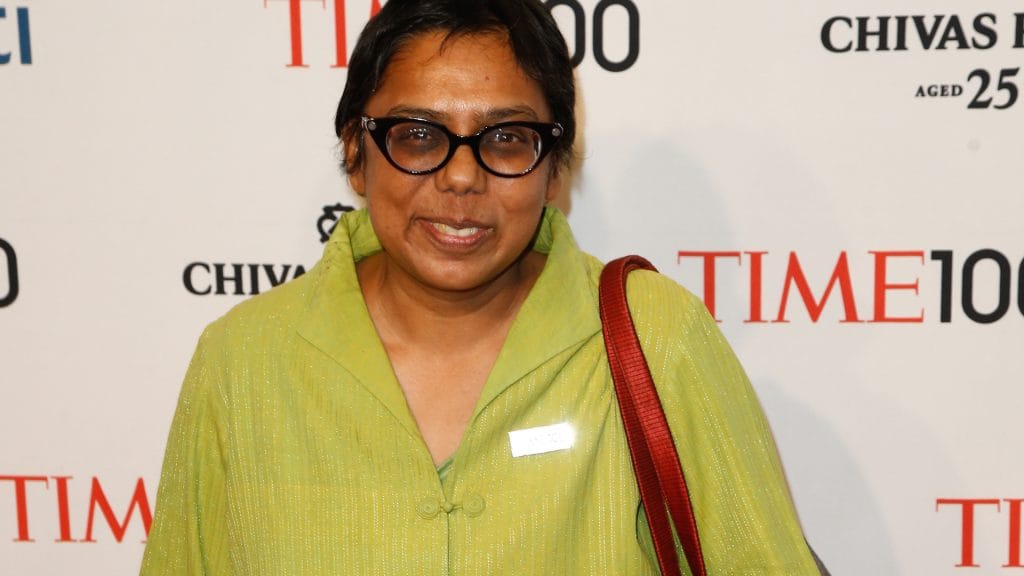
And somehow the rape in factory-like brothels across the country is a problem that is in plain sight but invisible. Because they are illiterate and poor, and they are from marginalised castes and communities, their rape is considered inevitable, whereas the rape of upper-class or middle-class educated women strikes horror and creates movements.
In the rape case in Unnao, for example, the woman spoke up and she was burnt, and her rapist’s father and the rapist were given high positions in a political party. So, there’s unequal treatment for people who are marginalised and people who are not.
So you have to make accountability at every level; it can’t just be of the rapist. And then at every level, people will need not just accountability but training so that the gender mindset, which is creating this entire targeting of female bodies to send messages to women or women as property or the fact that male entitlement to women’s bodies, all of it has to change. And that also rests on our understanding that women’s bodies are not available for sale.
The women who are marching on the streets can’t say that we want one set of rapists to be held accountable and not the other set. If there are customers who are buying women’s bodies, they feel their entitlement to women’s bodies. And this is how culture is created in a society, which leads to more and more entitlement. So we have to say no hypocrisies.
FII: The institutional barriers to fighting prostitution that you often mention in your talks, have they reduced in the previous decade?
Ruchira Gupta: It improved for some time after the Jyoti Singh Pandey rape because we had a sort of awakening of the women’s movement and the government responded. December the rape happened, and by April we had a new set of laws, and women were speaking up more openly on television, in magazines, on campuses, everywhere, and they were being respected for it. They were not getting stigmatised. But after that, we have faced a backlash, where that space that opened up is shrinking again.
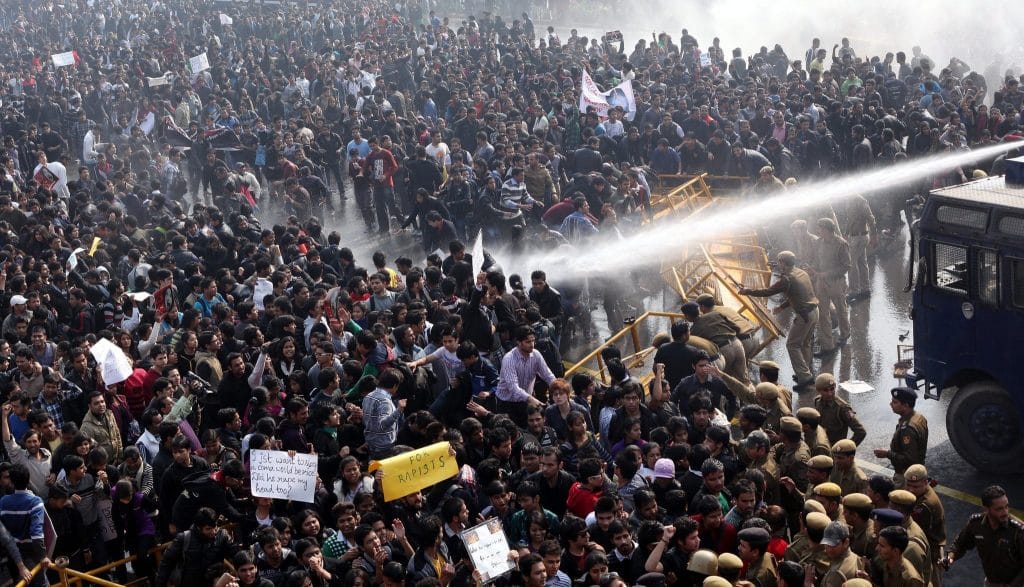
We have a political elite, which is extremely patriarchal, and it’s thinking at the centre also, right? They belong to an organisation that is all male; they don’t allow female members of the ruling party. Then the other thing is that they believe in the head of the family, like a man is the head of the family, a hierarchy in which a woman is below the man who’s the head of the family, whether he’s the father or the husband.
Equally obnoxious is the trope of a good woman. Regressive norms about who is a good woman also contribute to a toxic rape culture targeting women who are independent, working, and self-reliant. In India we have a lot of the gang rape cases—not rapes by individuals, but gang rapes, which is also almost like a spectator sport; men are getting together.
It’s really about dominance. And so this culture has to be really thought about very, very clearly.
FII: How do you think men can be sensitised, as in they unlearn the patriarchal tropes that objectify a woman? What role has Apne Aap played in this?
Ruchira Gupta: Apne Aap has been trying to promote the notion of a gentleman, especially at a time when people only worship the strong man and they vote people who are strong men as their leaders and then further promote toxic masculinity, which further promotes gender hierarchies and roles for women, which are subversive.

We launched the cool men don’t buy sex campaign to fight the culture of toxic masculinity. The first round of the campaign was on campuses run by male students. And it was the change in the law in India after the Jyoti Singh Pandey rape, where we said that prostitution is commercial rape and the traffickers and the sex buyers must be punished. So under that, through that campaign, we were able to submit 10,000 signatures to the President, and we asked that prostitutes should not be punished.
And we were able to succeed to an extent. So we were able to create a new law, Section 370 of the Indian Penal Code, in which victims of trafficking were decriminalised and traffickers were criminalised. But we could not get the law to punish sex buyers. We couldn’t go that far.
FII: Any message for the younger generation of male activists who fight gender inequality?
Ruchira Gupta: Speak up against all forms of gender-based violence, break the silence, and become our allies.
About the author(s)
Rohin Sarkar (preferred pronouns: he/him) is an eighteen year old teenager obsessed with critical theory, Anarchist studies and Ambedkarite literature. His passion other than academics include poetry by Faiz Ahmed Faiz and Habib Jalib along with Anarchist punk by David Rovics. He also enjoys Oxford style and British Parliamentary debating because it enables him to speak his mind without fear of being censured. When not studying or debating he is chatting on politics with his friends either on WhatsApp or in the college premises.
